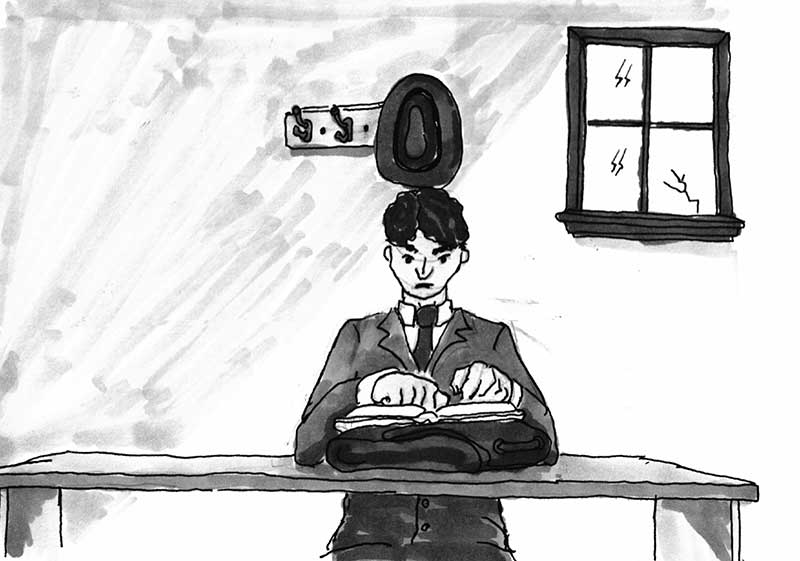For Haines’s chapbook. No-one here to hear. Tonight deftly amid wild drink and talk, to pierce the polished mail of his mind. What then? A jester at the court of his master, indulged and disesteemed, winning a clement master’s praise. Why had they chosen all that part? Not wholly for the smooth caress. For them too history was a tale like any other too often heard, their land a pawnshop.
Had Pyrrhus not fallen by a beldam’s hand in Argos or Julius Caesar not been knifed to death. They are not to be thought away. Time has branded them and fettered they are lodged in the room of the infinite possibilities they have ousted. But can those have been possible seeing that they never were? Or was that only possible which came to pass? Weave, weaver of the wind.
—Tell us a story, sir.
—O, do, sir. A ghoststory.
—Where do you begin in this? Stephen asked, opening another book.
–-Weep no more, Comyn said.
—Go on then, Talbot.
—And the story, sir?
—After, Stephen said. Go on, Talbot.
A swarthy boy opened a book and propped it nimbly under the breastwork of his satchel. He recited jerks of verse with odd glances at the text:
—Weep no more, woful shepherds, weep no more
For Lycidas, your sorrow, is not dead,
Sunk though he be beneath the watery floor...
It must be a movement then, an actuality of the possible as possible. Aristotle’s phrase formed itself within the gabbled verses and floated out into the studious silence of the library of Saint Genevieve where he had read, sheltered from the sin of Paris, night by night. By his elbow a delicate Siamese conned a handbook of strategy. Fed and feeding brains about me: under glowlamps, impaled, with faintly beating feelers: and in my mind’s darkness a sloth of the underworld, reluctant, shy of brightness, shifting her dragon scaly folds. Thought is the thought of thought. Tranquil brightness. The soul is in a manner all that is: the soul is the form of forms. Tranquility sudden, vast, candescent: form of forms.
Talbot repeated:
—Through the dear might of Him that walked the waves,
Through the dear might...

